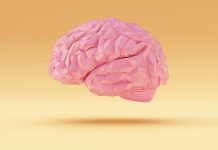
Depression affects 264 million people globally and is undiagnosed and untreated in half of all cases, according to the World Health Organization.
In a study from Nanyang Technological University, scientists found that mental health chatbots are able to effectively engage people with depression in empathetic conversations and assist in the treatment of their symptoms.
Chatbots or conversational agents are computer programs that simulate human conversations.
They are increasingly used in healthcare, for example, to help manage mental health conditions such as depression and anxiety and for general well-being.
A 2021 survey in the US found that 22% of adults have used a mental health chatbot, with nearly half (47%) saying they would be interested in using one if needed.
In the study, the team analyzed user-Chatbot dialogues to evaluate their effectiveness.
They analyzed nine mental health chatbots from leading app stores, of which five had at least 500,000 downloads, to see whether they offered self-help for people with depression.
Nine mental health chatbots were included in the study, four of which, Marvin, Serenity, Woebot, 7 Cups, are free-to-use, while Happify, InnerHour, Wooper, Wysa, and Tomo, required a subscription or one-time purchase to be used.
The team’s content analysis evaluated the quality and effectiveness of the chatbots’ responses and looked at the level of personalization, appropriateness in supporting self-management in users with depression, and how they conveyed empathy to users.
The study also monitored how the chatbots guided users to engage in or complete mood-boosting activities, how they monitored moods, and managed suicide risks.
The researchers found that all the chatbots displayed a “coach-like” personality that is encouraging, nurturing, and motivating.
Their analysis showed that while chatbots could engage in empathetic conversations with users they were not able to deliver personalized advice.
This in-depth analysis of the conversational flow may be useful to help app developers design future chatbots.
The team says chatbots are not yet able to provide personalized advice and do not ask enough personal questions—possibly to avoid breaching user anonymity.
However, these chatbots could still be a useful alternative for individuals in need especially those who are not able to access medical help. For some people, it’s easier to talk to a machine than to a human being.
If you care about mental health, please read studies that high doses of common depression drugs could switch off the brain, and Vitamin D could help reduce depression symptoms.
For more information about health, please see recent studies that fermented foods and fiber could help you reduce stress, and the MIND diet could improve cognitive health in older people.
The study was conducted by Lee Kong Chian et al and published in the Journal of Affective Disorders.
Copyright © 2022 Knowridge Science Report. All rights reserved.



